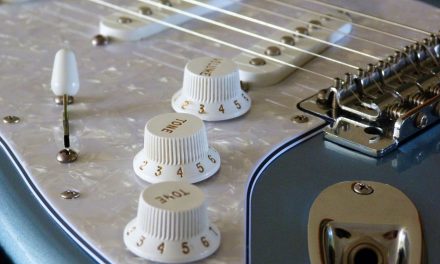This is the first entry in the Happiness category of the site. Over time, these entries will add up to a book titled “How to Love Making Music.”
This book is being written to share my experiences. I am writing it because I’ve been through hell and I want other people to avoid what I’ve been through. I’ll blow the ending right now and tell you that there’s a happy ending. The ending is me writing this book, via this website. If you want a shortcut, here it is: If you’re allowing music to depress you and make you unhappy and ruin your life, you’re doing it wrong. If that doesn’t make sense, keep reading these posts. Now let’s begin.
1. Understanding the Gift
Almost all humans appreciate music. For the most part, we all like it. Our own bodies keep a rhythm going, day in and day out, until the day we die and the beat stops. When we are calm or relaxed, the beat is slower. When we are excited or in danger, the beat is faster.
It’s no coincidence that the very first musical instruments were probably drums. We’re very close, in nature, to rhythm.
Most people have the “gift” of appreciating music. Most people do not understand music at a level where they can talk about it intelligently with actual musicians, but that does not prevent them from enjoying it, or in the case of music they dislike, loathing it.
But what about the process of actually making music? And beyond that, the process of actually writing it?
Obviously not everyone can play an instrument, though certainly anyone can if they wish to. And obviously not everyone who can play an instrument can write a song, though again, they could if they wished to.
When we see someone perform on their instrument, if they’re good, we say they’ve been given a gift. Have they?
Since we’re talking theology, or we’re about to, I’m going to share my view. My view is that it doesn’t matter in this discussion whether you believe in God or not. I feel like I’ve got some good questions and good answers about music, but solving the mystery of God is not something I’m going to tackle.
But I do believe, because it’s easy to see, that some people are born with the ability to learn how to play an instrument more quickly and/or better than the average person. You could call this “innate ability.” Some people call it “talent,” but I don’t like that label, and you’ll eventually learn why.
So if there are people who are born with such innate abilities, where did those abilities come from? Are there genes that make one more “musically fit” than the average person? Is there such thing as a “music gene?” So far, scientists haven’t got a clue. Musical geniuses have appeared where neither parents were musicians, so if there is something in the genes, it can lay dormant and then pop up in one generation or the next.
But the “gift” of music, which would be this genetic predisposition, is not the only factor that goes into making a happy musician. The title of this series is “How To Love Making Music.” And while I wrote it for musicians, I do not believe that you need to be born like Mozart in order to love making music. However, you do need a combination of things:
1. Innate ability
2. Creativity
3. Work Ethic
4. Desire
5. Logic
If you want to LOVE making music, you need a combination of all of those things. There are some people making fantastic music who have large quantities of 4 out of 5 items, or even all 5. There are also people who give up on music because they are lacking in one or more of those items.
So there you go. Now you know exactly what you need. Not really. A glib little list is what I just gave you. It’s shorthand for much deeper concepts. And we’re going to discuss them in much greater detail, here on this site and later in the book version of this.
But first, some encouragement. You can cheat. You can love making music outside of the framework I’m laying out. It’s possible. This is just a guideline. But it’s a guideline that will work for the majority of people.
Next Post – Innate Ability



